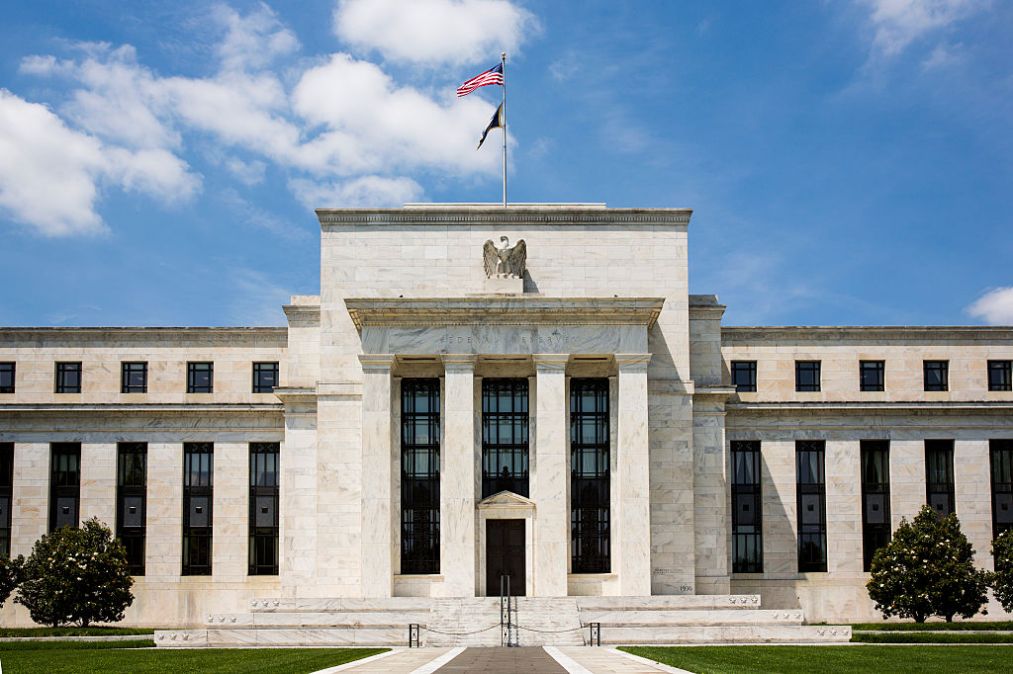Fed, SEC need more consistent blockchain coordination, GAO says

Coordination among two financial regulators to take on the risks posed by blockchain technology has lacked consistency, a congressional watchdog said Monday.
In a pair of priority open recommendations, the Government Accountability Office said the Federal Reserve and the Securities and Exchange Commission have succeeded in establishing coordination mechanisms with other federal regulators and financial working groups to identify the risks posed by blockchain-related products and services. But neither the Fed nor the SEC has “regularly” convened those bodies since the GAO delivered its recommendation in August 2023.
Lacking a cadence in convening these groups, the GAO said, means both agencies are unable “specifically to identify the full range of risks and regulatory challenges of existing and emerging blockchain products and services and provide a timely response to any unaddressed risks.”
The Fed, which neither agreed nor disagreed with the GAO’s recommendation, said it “routinely engages with the other federal financial regulators on emerging risks posed by blockchain-related products and services.” The banking regulator noted that it participates in information-sharing on identifying blockchain risks with other regulators in the Digital Asset Working Group, but the GAO is pushing for “planning processes for identifying and addressing such risks” within that group.
“Fully implementing this priority recommendation would help the Federal Reserve and other financial regulators collectively identify risks posed by blockchain-related products and services and develop and implement a regulatory response in a timely manner,” the GAO stated.
The SEC, meanwhile, told the GAO that it works to identify crypto-related risks in the agency’s work with the Financial Stability Oversight Council, the President’s Working Group on Financial Markets and some international bodies. FSOC “established a coordination mechanism” through the Digital Asset Working Group, the SEC reported to the GAO, adding that the working group “meets regularly and has discussed a variety of topics, including regulatory developments, rulemakings, risks, data collection, and market developments.”
The GAO called the Digital Asset Working Group “a positive step,” but prodded the SEC to embrace planning documents.
“Such planning documents could include (1) objectives and meeting frequency; (2) processes for identifying the full range of risks and regulatory challenges concerning blockchain-related products and services (not only those related to financial stability); and (3) processes for responding to these risks and challenges within agreed-upon timeframes,” the GAO said.
Beyond blockchain, the GAO re-upped a second priority recommendation to the Federal Reserve, which was originally delivered in 2019. The watchdog wanted the Fed, along with other banking regulators and the Consumer Financial Protection Bureau, to finalize “written communication that gives banks specific direction on the appropriate use of alternative data in the underwriting process when partnering with fintech lenders.”
The Fed teamed with the Federal Deposit Insurance Corp. and the Office of the Comptroller of the Currency a year ago in issuing interagency guidance on third-party risk management, but the GAO said that the guidance falls short on specificity.
The guidance “does not include specific direction to banks that engage with fintech lenders on the appropriate use of alternative data in the underwriting process,” the GAO wrote. “Rather, the guidance broadly applies to all topics and third-party relationships. Accordingly, it does not address specific topics, such as the use of alternative data, or specific types of third-party relationships, such as relationships with fintech companies.”



